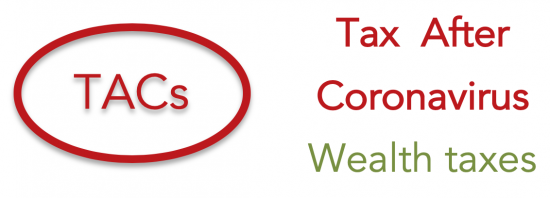
The reasons why wealth needs to be subject to additional taxation has been discussed in another Tax After Coronavirus (TACs) post, with all links being supplied there and so it will not be repeated here.
What was also discussed in that post was that the necessary short term changes to wealth taxation fall into three groups. They are, firstly, to equalise tax rates on equivalent sources of income or allowances. Second, it is by reconsidering those things that should be taxed that are not but might be if the goal of greater equality is to be achieved, and vice versa. In other words, those parts of available tax bases subject to exemptions and reliefs need to be reviewed. Third, it is about creating a more progressive tax system by changing
Scrapping the personal savings tax allowance
The suggestion made in this post is that the annual savings allowance for UK tax purposes, introduced in 2016, should be removed.
As the government says of that allowance:
You may get up to £1,000 of interest [a year] and not have to pay tax on it, depending on which Income Tax band you're in. This is your Personal Savings Allowance.
To work out your tax band, add all the interest you've received to your other income.
Income Tax band Personal Savings Allowance Basic rate £1,000 Higher rate £500 Additional rate £0 Your allowance applies to interest from:
The reasons for the suggestion that this allowance be removed are threefold.
Firstly, it is unnecessary: anyone who wants a tax free of up to £1,000 a year from investments can use ISAs. This allowance, therefore, duplicates another that is already available and provides a double allowance for those with wealth: that is unnecessary and costly and distorts the tax system.
Second, the allowance subsidises wealth - albeit by less than some other arrangements, but the implication that there should be a bias towards wealth within the tax system that all can partake in and so approve of is the very clear political logic to this, and by providing cover for other schemes that contribute significantly to inequality in the UK this scheme is potentially harmful to the integrity of the tax system as a whole if that system's aim is to reallocate income and wealth, as would appear to be the overall objective of UK tax policy.
Third, the withdrawal of the withholding tax arrangement on payments of interest, dividends and other such sums that resulted from this move meant that
a) less tax was collected at source;
b) inadvertent tax evasion increased, and
c) deliberate tax evasion was facilitated.
Withholding taxes always uphold the rule of tax law and to remove this arrangement undermined that.
This allowance appears innocuous. It is not because it creates bias within the tax system and undermines its effectiveness. For that reason this allowance should be abolished. It is poorly designed and duplicates other parts of the tax system. It is, therefore, unnecessary whilst contributing to the creation of greater inequality.
Thanks for reading this post.
You can share this post on social media of your choice by clicking these icons:
You can subscribe to this blog's daily email here.
And if you would like to support this blog you can, here:



The £1000 allowance (replicated in small scale self employment and property income) ins’t of itself too bad, although I agree that witholding taxes are simpler for e.g. elderly who don’t then have to be needlessly involved in tax system. It is the £5000 allowance that should go – widely exploited and not used for it’s intended purpose (a bit like Gordon Brown’s 0% CT rate that really fueled self employed becoming ltd cos).
Another that should go is the marriage allowance transfer – mainly because it is expensive to monitor/work with for HMRC – lots of manual interventions.
Accepted
I have mixed feelings about this one.
I don’t think we should really be taxing the inflationary component of interest, which generally speaking for most people at the moment is all of it. But all these allowances you are highlighting are nonsense and withholding should be restored.
One of those questions I always wonder about, but never to the extent of actually bothering working out the answer, is what the maximum income one might have – optimally arranged to take advantage of all the various allowances (personal, savings, capital gains, etc.) – without any tax liability arising. I’m sure it’s a lot more than people think!
Not a clue!